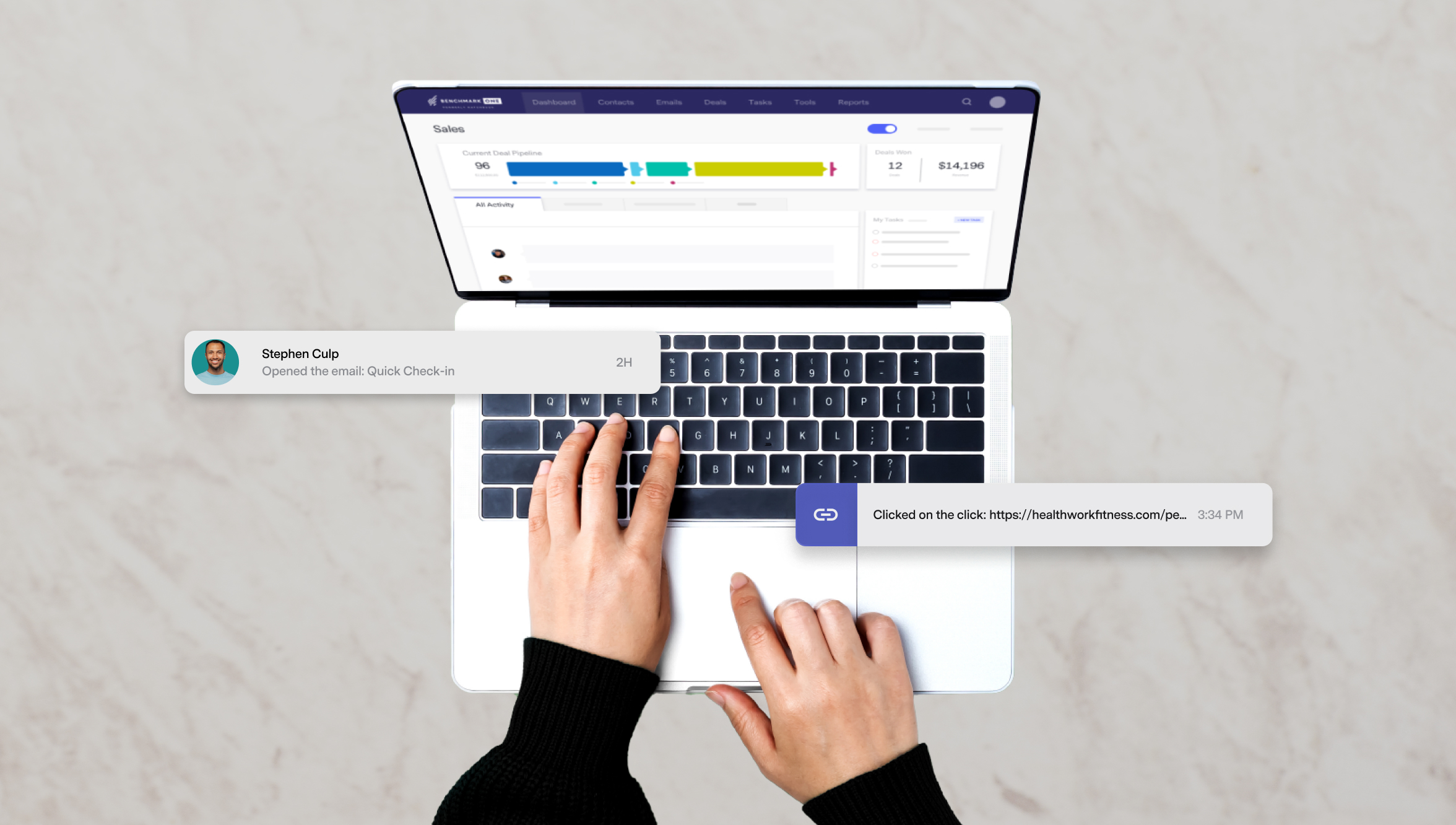Why Personalized Marketing Should Be at the Core of Your Strategy
January 12, 2023 5 min read

Marketing is the lifeblood of any organization, but its success is contingent on how well you know your target audience.
When you know your target audience, you not only know where to find them online but how to reach them with your marketing strategy. A more traditional marketing approach is to cast a wide net to reel in your audience. However, personalized marketing allows you to be a bit more strategic with your approach.
What is Personalized Marketing?
Personalized marketing uses collected data and insights to deliver targeted brand messaging to each customer or prospect. The approach of customizing each brand message helps to make your campaigns more relevant for the individuals receiving them.
Traditional marketing emphasizes quantity, but personalized marketing isn’t about reaching as many people as possible with the same message. Rather, the primary focus of personalized marketing is the relevance and quality of brand messaging for the person it is directed towards. When you implement personalized marketing, your brand messages get across to your ideal customers at the right time and with the right content.
Data + Personalized Marketing = The Perfect Match
Some marketers view personalized marketing as just adding the first names of their prospects to emails, newsletters, and other communications. But to truly practice personalized marketing, you need all the information you can get about your customers and prospects.
Without data, it’s hard to discern what your customers need and how you can proffer solutions. You need to collect data to be able to:
1. Identify Customer Needs
Consumers are fed up with generic marketing blasts that do not consider their needs. You should focus on data that tells you what your customers are searching for and the problems they need help with. You can use polls and surveys to get this directly from your customers, then create content that answers their queries and solves their problems.
If you’re interested in gathering data on your prospective customers, then look into outsourcing data collection from an agency so you can tap into that kind of information.
2. Remember Previous Actions
Seek to understand how prospects have interacted with your brand in the past, the channels they use, the preferred mode of communication, and their preferred content formats.
CRM software like BenchmarkONE will help you keep track of everything you’ve learned about your individual customers and leads as they move through different stages of the buyer’s journey, interact with your content, and download your resources.
3. Predict the Future
Once you have all the data you need, it’s easier to discern your customers’ needs and predict the solutions they’ll be looking for. This is where you genuinely personalize marketing by creating and delivering content that is highly relevant to your prospects.
The Pros of Personalized Marketing
Personalized marketing benefits businesses and consumers when implemented correctly. Below are some benefits personalized marketing offers.
Improved Customer Satisfaction
Personalized marketing addresses your customers’ pain points, making them feel heard and understood. This increases their satisfaction with your brand and can encourage repeat business and brand loyalty.
Build Trust
Brand messaging tailored to the customer’s needs and immediate problems ensures that customers get the most relevant marketing messages. Consumers are receptive to relevant content, unlike generic marketing messages that do not speak directly to their needs. When you’re able to send them content that addresses their biggest pain points, you’ll solidify trust and establish the groundwork for a lasting relationship.
Customer Loyalty and Retention
People feel comfortable with brands that make them feel heard and appreciated. For this reason, 40% of consumers are more likely to make a more substantial purchase from brands that implement personalized marketing.
Better Marketing Returns
The ROI from traditional marketing will be limited as you seek to build trust with new clients. However, the effort you put into personalized marketing can push your consumers to spend more as they get tailored product recommendations. In fact, a personalized approach to marketing can increase revenue by 5-15%.
Things To Keep In Mind Regarding Personalized Marketing
Data is currency, but getting all the relevant data you need to deliver personalized marketing experiences for your customers can be challenging. Customers will likely be receptive to data collection tools they have control over, like polls and surveys.
Personalized marketing is great but don’t push so hard that it causes your consumers to move away from you. When consumers feel like brands know too much about them, it can leave a bad taste in their mouths and erode trust.
Budget is another aspect that needs your consideration. Due to the effort it takes to implement personalized marketing, you should make sure that you have enough funds to help you get the needed time, labor, and resources to get it done.
How to Put Personalized Marketing Into Practice
To implement personalized marketing. Start by:
- Creating a team of professionals who know what personalized marketing is, can develop use cases, and reach out to customers to source data.
- Collecting needed data while respecting the privacy of your customers. Do not focus on amassing extensive data collection right away. Rather, focus on getting the essentials you need to deliver a personalized marketing experience.
- Using this collected data to segment your audience into different groups based on shared attributes. This can be demographic, interests, income, and buying behavior.
- Choosing the marketing channels that you’ll be personalizing. This should be based on the channel customers are more likely to respond to and where they can best be reached. Email personalization is extremely effective, making it a popular approach. However, you can implement personalization in your social media strategy as well. Bonnie Azoulay of Word of Mouth sees great success sending personalized social media messages. “For my clients, I send a welcome message to each new Instagram or Linkedin follower saying hello, what we do, and how we can help. I always make sure to use the follower’s first name and warmly welcome them into the community!” Instead of sending a cold, generic automated response, the message shows off her client’s personality and provides resources about how they can be contacted and what they do. This helps establish trust immediately and turns a cold lead into a warm lead.
Personalized marketing may seem like an approach that requires a lot of work, but with the right tools, data, and implementation, your business can see some impressive ROI. Start with CRM software to store and track this data, then integrate it with an email marketing tool, like Benchmark Email, so you can send surveys to your customers and prospects. Good luck, and don’t look back (unless it’s to gather more customer data!)






